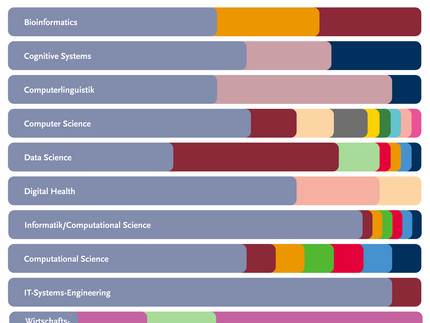Computer Science at the University of Potsdam

Dear prospective students,
Computer science is the science of systematic information processing.
It pervades all areas of social and economic life and interconnects with many fields of study and research.
We offer degree programs with focuses in engineering, the natural sciences, the cognitive sciences, economics and business studies, biology, and earth science.
Computer Science Is Changing the World
What makes Potsdam's computer science programs unique?
What future prospects does computer science offer?
Dr. Lars Schneidenbach, alumnus
„Thanks to my computer science degree at the IFI, I am now a research software engineer at the IBM T.J. Watson Research Center in the United States using the world's fastest computers yet to research the fundamentals for the next generations of high-performance computers. Given the same choice, I would pick Potsdam again because the Institute's small size enables direct contact with professors and lecturers. It's far from an assembly line; you're a student, not a number. Also, the proximity to the rich scientific environment in and around Potsdam provides many opportunities to think outside the box of computer science and look at its applications.“
Nicole Luckow, alumna
„Thanks to my computer science degree, I am now an IT analyst at BMW. Women in particular shouldn't be intimidated by technical majors; they should just give it a shot. I'm still getting a lot of enjoyment from my work in IT! Nothing goes without IT anymore. I can work on new, exciting projects—from SAP software to web applications—and help shape the future.“

